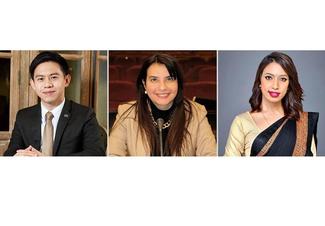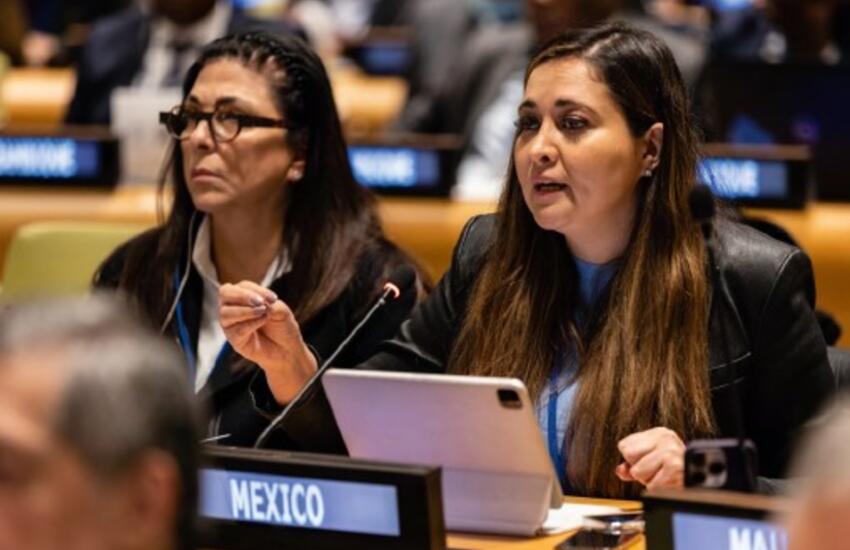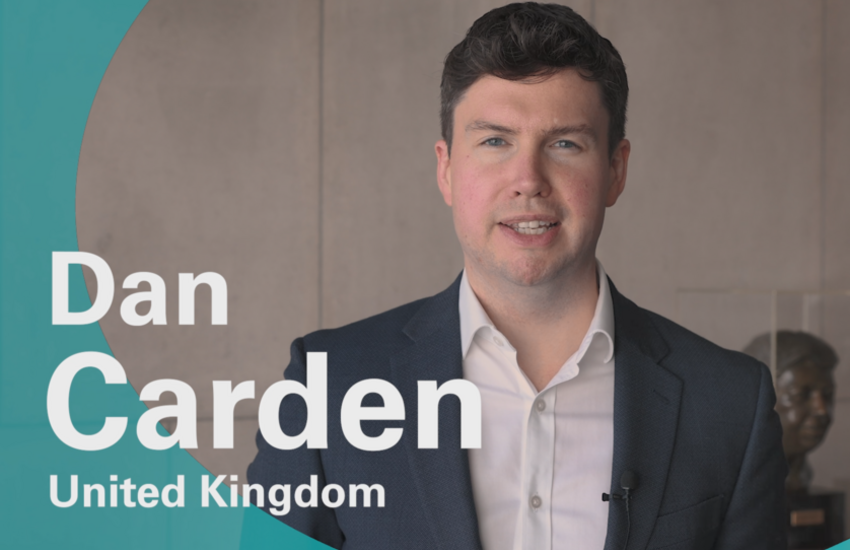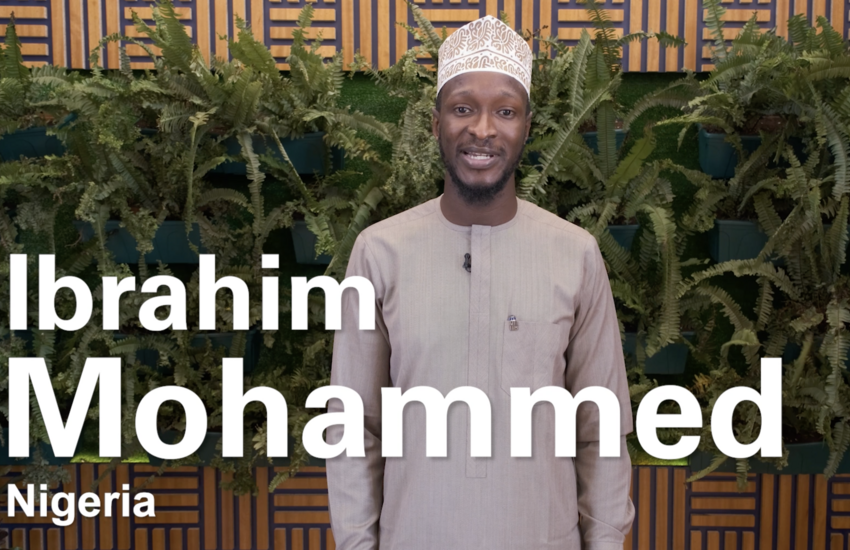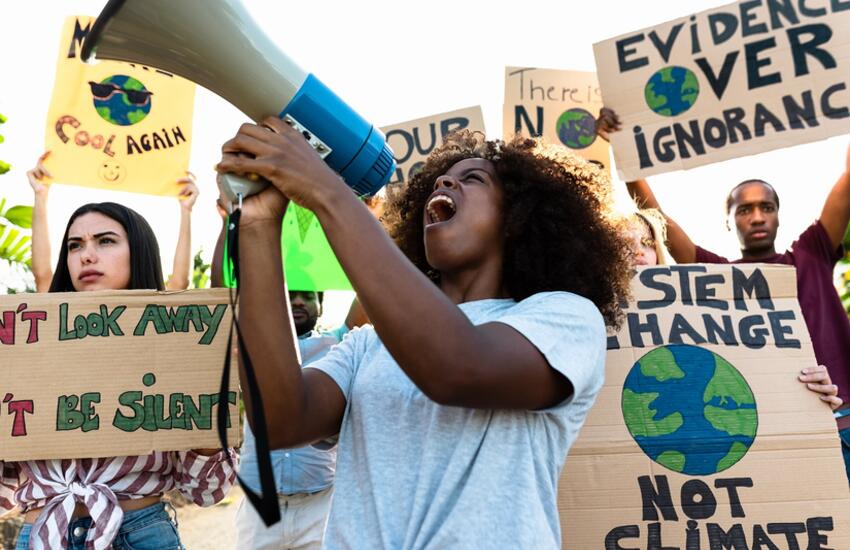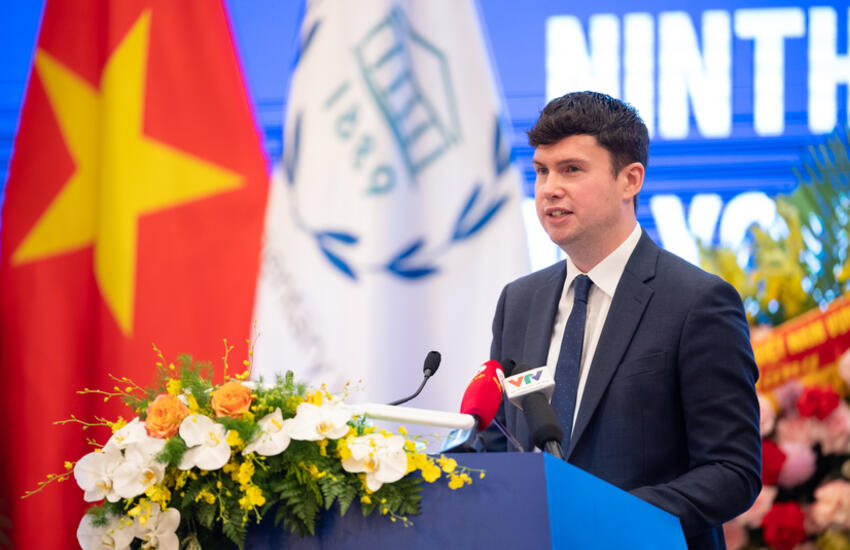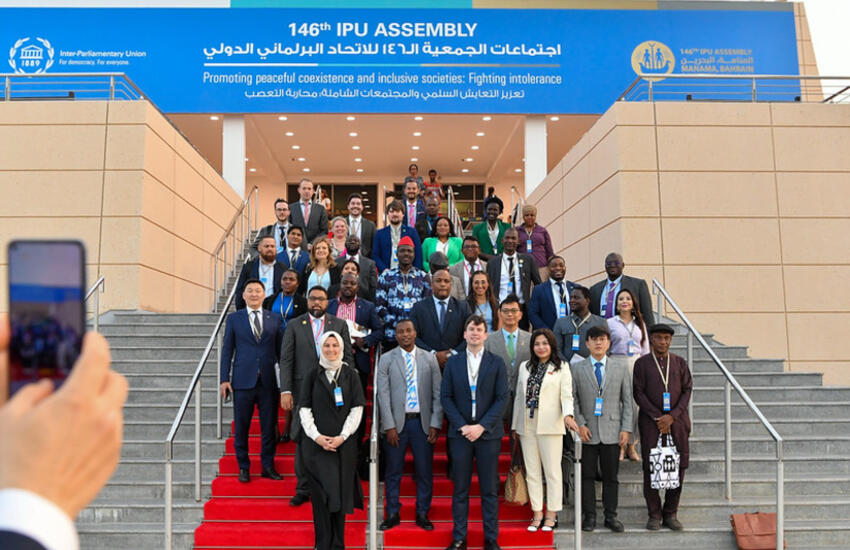To celebrate the International Day of Parliamentarism on 30 June, we asked three young MPs three questions about parliamentary work. The three respondents have recently been elected to the Board of the Forum of Young Parliamentarians, a group within the IPU dedicated to boosting the participation of young people in parliaments and helping to ensure young MPs play a full part in the work of parliament.
The Forum is dedicated to closing one of the most significant gaps in global democracy: the deficit of political representation of youth worldwide. Over half the world’s population is under 30, yet only 2.6 per cent of parliamentarians globally are according to the IPU’s biannual report on Youth Participation in National Parliaments.
The Forum of Young Parliamentarians is steered by a Board composed of 12 young parliamentarians—one man and one woman from each of the six IPU geopolitical groups—who in turn elect a president. We interview the new President, MP Sahar Albazar of Egypt, along with her MP colleagues on the Forum Board, Dr Issara Sereewatthanawut of Thailand, and Ms Teenah Jutton from the Mauritius National Assembly, all under the age of 40.
What is the one big change you would like to see in your country after the pandemic?
Ms Sahar Albazar:
“During the pandemic many countries moved to new work norms. These norms provided more flexibility to employees which helped families enjoy a better work-life balance. I would like to see these practices continue after the pandemic.”
Ms Teenah Jutton:
“We cannot force ourselves into confinement nor close ourselves to the world. What we need is to learn to live with the virus. That is why it is extremely important for the whole population to get vaccinated. So far, thanks to bilateral relations with countries such as India and China, Mauritius has benefitted from several types of vaccines. However, we still need more and look forward to the gracious collaboration and support from other countries.”
Dr. Issara Sereewatthanawut:
“As Thailand is emerging from the pandemic, I wish to see the mobilised political commitment of MPs and support of all stakeholders in revamping future education systems based on essential digital infrastructure. To address the inequality of access and to secure continuity of learning opportunities, bridging the digital divide is urgently required to ensure greater inclusiveness to effective online education whilst minimising the relevant financial burdens, especially for those marginalised and living in poverty.”
How does your work as a parliamentarian help to spark positive change?
Ms Sahar Albazar:
“As a parliamentarian I have the privilege to serve our people and our communities. This can be done through parliamentary tools and legislation, or in leading social initiatives that meet the needs of different communities.”
Ms Teenah Jutton:
“Being the youngest in Parliament at the moment, and as a fervent youth and gender advocate, I strive to empower our youth and young women. In the past I was able to do social work and advocate for change but today, as a Parliamentarian, I can ‘Bring the Change’. I strive to not only contribute to the academic formation of youths but in coaching and mentoring them to become their better selves.”
Dr. Issara Sereewatthanawut:
“In 2020, the Young Parliamentarians Caucus of Thailand was established, and I was elected its first president. Our aim is to mobilize awareness and promote youth inclusiveness in public affairs, while welcoming intergenerational dialogue among young and senior MPs. I also joined my fellow young MPs of ASEAN countries in reviewing a draft resolution on young parliamentarians’ participation for future institutionalization of youth agenda.”
Why is it important to get more young people involved in parliaments?
Ms Sahar Albazar:
“The future belongs to the young people. They must have a say about how their future should look like. That's why more young people should be involved in all political institutions and processes such as parliaments, political parties, elections and public administration. Their fresh eyes are needed in parliaments to tackle the social and economic issues with innovative legislation.”
Ms Teenah Jutton:
“Our youth are our future and in this era of millennials, the dynamism, innovative ideas and resilience of our youths is commendable. It is therefore important to provide our youth with the opportunities to voice their ideas and proposals, and act on solutions. The future is in their hands and they must be involved in shaping it.”
Dr. Issara Sereewatthanawut:
“Young people are living with the consequences of actions taken before them. They must therefore be the major contributors who design and shape the society they prefer to live in. Furthermore, the quality of living they aspire for their descendants will induce them to embrace social responsibility, an environmental conscience, and inclusiveness – especially viewpoints and values of senior citizens whom they one day will become.”





